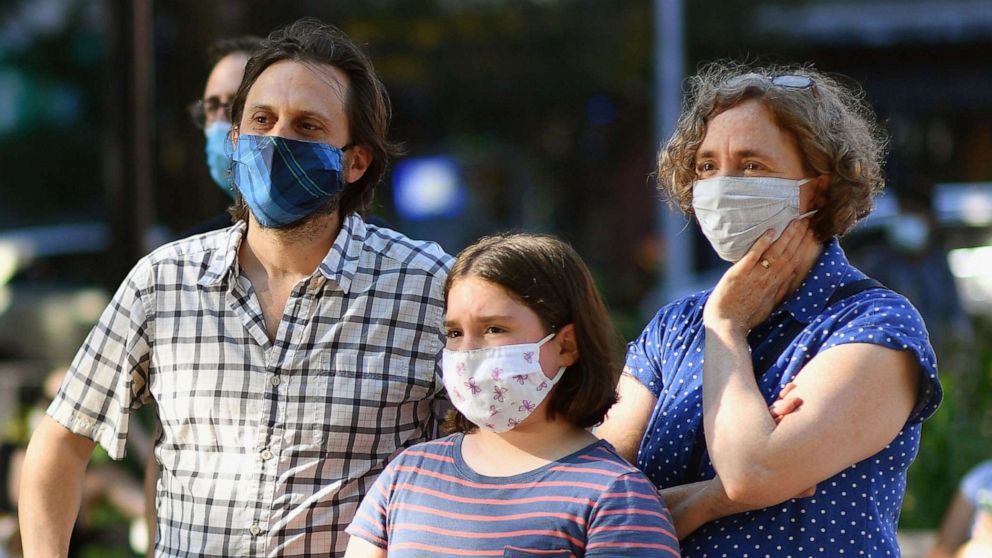Getting the vaccine does not mean you can ignore precautions.
As the promise of a COVID-19 vaccine is fulfilled amid the launch of the Pfizer / BioNTech and Moderna vaccines, the need to continue wearing masks, washing hands and maintaining social distance remains a critical mission to protect lives.
Public health measures have been the main tools for preventing infection and transmission of the virus. The use of a face mask can reduce an individual’s risk of infection by 70%. With the emergency use authorization of the Pfizer / BioNTech and Moderna vaccines, there is an opportunity to further reduce the risk of disease due to COVID-19.
However, vaccines can give people a false sense of security that masks are no longer needed. Unfortunately, this is not the case.
Vaccination teaches the body to successfully fight a virus without actually getting sick. This contrasts with public health measures, which depend on reducing exposure to the virus. To contain this pandemic effectively, it is necessary to continue reducing exposure to the virus and supporting vaccination campaigns.
Here are the reasons why you need to continue wearing a mask (and practice other recommended safety guidelines) during and after vaccination:
–Vaccination does not provide instant immunity.
Pfizer / BioNTech and Moderna vaccines require two doses administered weeks apart. Depending on the vaccine, it may take four to six weeks from the initial dose to achieve levels of immunity and protection comparable to those in clinical trials. During that time, it is still possible to get an infection and get sick.
–Vaccination trials did not track whether participants wore masks.
Although clinical trials have strict enrollment and monitoring criteria, it is not clear whether study participants received guidance on wearing the mask. Given the lack of data, it is not clear whether vaccination effectiveness had anything to do with vaccine test participants’ adherence to public health safety measures, such as wearing masks.
The real world does not mimic a controlled clinical trial.
Factors such as how the vaccine is stored, transported, administered and an individual’s medical health can determine the vaccine’s effectiveness in the real world. Clinical trials have assessed healthy individuals with stable preexisting diseases. As mass vaccination campaigns take place, operational logistics, along with an individual’s unique medical conditions, can affect overall immunity levels.
The herd immunity limit for COVID-19 is unknown.
Herd immunity occurs when a sufficient number of the population is exposed to the virus, usually through vaccination, and limits the virus’s ability to spread. The percentage of the population that requires immunization to obtain collective immunity varies according to the disease. For example, in the case of measles, 95% of the population needs to be vaccinated to limit spread. According to the Centers for Disease Control and Prevention, the herd immunity limit for COVID-19 has not yet been established.
The duration of immunity to the vaccine is unknown. The Food and Drug Administration requires an average of two months of safety and efficacy data after completing the vaccination regimen for emergency use authorization. The duration of vaccination coverage has not yet been determined and will be monitored as vaccination campaigns are launched. The good news is that the memory cells in our immune system, which identify infections and mount an immune response, persisted for more than six months in some patients infected with COVID-19.
It is not clear whether vaccines prevent transmission of COVID-19.
In their clinical trials, Pfizer / BioNTech and Moderna, did not track cases of asymptomatic infections with COVID-19. This means that the vaccine’s ability to decrease transmission has never been evaluated. Future studies will need to assess whether vaccination decreases viral transmission before we can reevaluate the role of public health measures.
As this pandemic spreads globally, with more than 1.5 million dead, according to data from the World Health Organization, the scientific community has achieved its own impressive milestone. Within 10 months, vaccines were created, tested and implanted with enviable efficacy rates of more than 94% and without serious adverse events. Much of that success depends on continued cooperation. It is imperative that every eligible individual be vaccinated. Vaccination significantly reduces the risk of becoming ill, but does not signal the end of public health measures.
Jay Bhatt is an intern, an instructor at the School of Public Health at the University of Illinois and a contributor to ABC News. Shazia Ahmed, MD, is a physician in Massachusetts and former medical director of 2020 On-Site.
